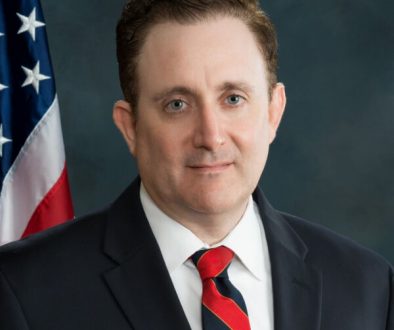Dr Martin Ashby on animal experimentation
Dr Ashby has seen patients prescribed drugs costing thousands of pounds a month who are nonetheless not receiving adequate nutrition, hydration and basic care. Something is profoundly wrong with the healthcare system, he observes.
 Dr Martin Ashby obtained his medical degree from University College London Medical School, having first completed his studies in psychology. After training as a GP he became the Lead GP for a service providing GP services to the homeless in North London.Three years later he returned to general practice at a rehabilitation centre for alcoholics in south London. He has since spent four years studying palliative medicine and is currently employed as a consultant at a hospice in the south of the UK.
Dr Martin Ashby obtained his medical degree from University College London Medical School, having first completed his studies in psychology. After training as a GP he became the Lead GP for a service providing GP services to the homeless in North London.Three years later he returned to general practice at a rehabilitation centre for alcoholics in south London. He has since spent four years studying palliative medicine and is currently employed as a consultant at a hospice in the south of the UK.Antidote Europe (AE): At what point in your medical training did you begin to question the value of animal models with respect to human medicine?
Martin Ashby (MA): During my undergraduate training at medical school we were expected to perform experiments on frogs’ legs and rabbits’ hearts. Interestingly these experiments were conducted in our human physiology modules. I, along with many of my colleagues, took part in the frogs” legs experiments, which involved nerve conduction studies on legs removed from frogs that had been recently killed. Because many of us in my year felt we had not gained anything from these experiments, we refused to take part in the rabbit heart experiments that were tabled a few weeks after. At the time we were told that all of these experiments were an “essential” part of our training and our understanding of the physiology of the nervous system and human heart. When trying to debate the issues, some of the physiologists were extremely defensive and at times intimidating, and sadly some medical colleagues were also equally dismissive and patronising. My hope of university teaching one to think and question was clearly under threat. Science to me was about always questioning current dogma, but at times it began to feel more and more like a quasi-religious group!
Two years later I learned these experiments were removed from the curriculum, thus proving that they were in no way “essential” for our training. I wondered what other animal experiments had been performed in the past in undergraduate teaching that were in fact anything but “essential”. My questioning had started.
This experience taught me a number of lessons. Medicine is often quite a conservative clique; anyone who questions current wisdom can come up against resistance and ridicule. Essentially we were already chasing that elusive reference before we had started work, and making sure we fitted into the ideal candidate mould. This is a sad state of affairs. From that point on when I was told an animal experiment was essential, my experience had taught me to start questioning this.
AE: What are your current views on animal experiments?
MA: I started to read up on both the pro- and anti-vivisection arguments. Most of the anti-vivisection societies at the time were still debating the ethical pros and cons of animal experiments, and all the pro-vivisection organisations were saying how essential animal research was, using emotional arguments around testing of drugs that boiled down to “your baby or a dog”.
However, soon I was interested to discover that there was an increasing number of doctors and scientists questioning the relevance and reliability of animal experiments as models for human disease. I made efforts to meet up with and speak to some of them; many were not open about their beliefs for fear that their careers would suffer. I read books by Dr Ray Greek and Prof Pietro Croce and others. As I began to learn, there are numerous examples (which I won“t list here), where animal experiments did not predict reactions in humans. Eventually the penny dropped. Testing a drug or treatment on an animal, in order to ascertain if it is safe and effective for use in the human body, is not science. On the odd occasion when a result was predicted in animal models this was coincidental, not the result of a scientific process.
Aside from the physiological differences, the complexity of humans and the interaction between our diseased state and our psychological and social health can never be underplayed. In my own field, palliative medicine, a lot of my work involves treating patients for pain. I never fail to be struck by how almost identical disease states can cause tremendous pain in one patient and yet no symptoms in another. Drugs can work amazingly well in some but cause intolerable side effects in others. The thought that a pain medicine can be tested on a completely different species with an artificial pain model, eg, sitting an animal on a hot plate in a sterile laboratory environment, and that these can be useful for predicting outcomes in patients with advanced cancer or other diseases, is a depressingly naïve one.
Animal experiments as models for human disease are not, in my view, science.
AE: What are your views on fundamental (i.e. curiosity-driven) research involving living animals?
MA: I once heard a colleague say at medical school, “Inject a rat and out comes a paper.” That always stuck in my mind. My views remain the same. Animal research to find treatments for human disease is not the way forward.
As a quick test, while writing this article I did a Medline search of a drug that is used frequently in pain control “Gabapentin”. Gabapentin has been on the market since 1993. It is well know that Gabapentin often works very well in combination with opioids to treat certain types of pain. Sales have been huge and hundreds of thousands of patients will have taken the drug in the UK. Despite this wealth of human experience with the drug I managed to find a research study done in 2012 where mice were put on hot plates to test the pain relieving effects of Gabapentin in combination with opioids. This was done only three weeks before I wrote this article, nearly twenty years after the drugs has been on the market. Why? If we wanted, we could have ample data from humans in real life situations with real pathologies that cause pain. For me this quick test says a lot. The quote I heard at medical school rings loud and clear.
AE: If you were Minister of Health today, what would your priorities be to improve the health of the nation?
MA: This is an interesting question. My answer would be that a large influence on our health lies not with the ministry of health, but with cutting our links and too cosy relationships with the food and beverages industry and its lobbyists. It seems to me relationships and influences similar to that of the tobacco industry are being repeated all over again. Seeing maternity units being sponsored by fast food giants makes me shudder. We are facing ever increasing rates of obesity, hypertension and type 2 diabetes and all its attendant health problems.
That said, in the world of “health”, I feel that there is a great overemphasis on chasing the next drug discovery. I am not against new drug discoveries at all, but rarely a week goes by when I see patients who feel they have been failed by the current system because of a lack of basic care, communication and dignity. It is not uncommon to see patients on drugs costing thousands of pounds a month, and yet not receiving adequate nutrition, hydration and basic care. Something is profoundly wrong. The recently well-publicised case of North Staffordshire Hospital uncovered an appalling lack of basic care. Examples ranged from patients left in soiled bedding to bereaved relatives describing how their loved ones were forced to drink water from flower vases because of a lack of access to water to drink. This is an embarrassing example of what is often wrong in our health service.
AE: We thank you for giving up your time for this interview. Are there any additional comments that you would like to add?
MA: Although animal experiments testing cosmetic and household products may be abolished with public support alone, I think that until the medical profession get onside, medical experiments using animals will be harder to abolish. Unfortunately there are a lot of vested interests and careers built upon animal experimentation their continuation. There is a lot of intimidation and conservatism. As the medical and scientific community increasingly question the scientific validity of animal models, as models for human disease, the profession will begin to reject them. This is why it is so important for organisations such as Antidote Europe to campaign and I wish you the best of luck with your aims.




